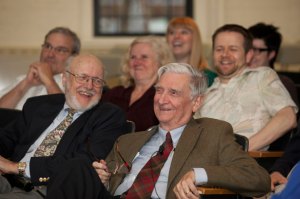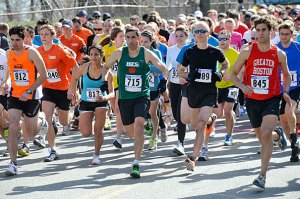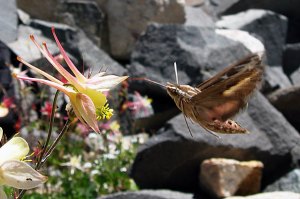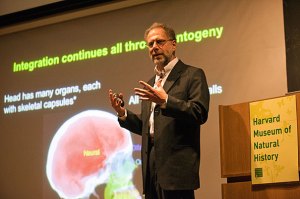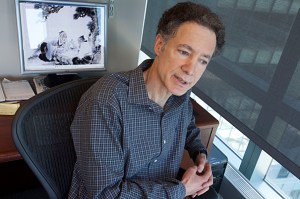Tag: Evolution
-
Health
Forward thinking on HIV
A research team led by Martin Nowak has developed a technique for modeling the effects of various HIV treatments and for predicting whether the treatments will cause the virus to develop resistance.

-
Science & Tech
Clues in the cucumber’s climb
Harvard researchers, captivated by a strange coiling behavior in the grasping tendrils of the cucumber plant, have characterized a new type of spring that is soft when pulled gently and stiff when pulled strongly.
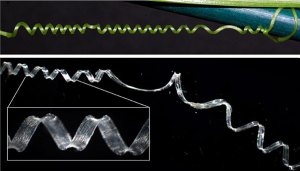
-
Science & Tech
Listening for clues
Baby songbirds learn to sing by imitation, just as human babies do. So researchers at Harvard and Utrecht University, in the Netherlands, have been studying the brains of zebra finches — red-beaked, white-breasted songbirds — for clues to how young birds and human infants learn vocalization on a neuronal level.

-
Science & Tech
Using evolution to understand pollution
A tool rarely used to understand the impact of pollution on the natural world is evolution, an oversight that an environmental toxicologist says is robbing investigators of important information.
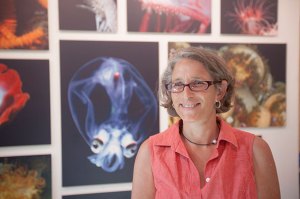
-
Science & Tech
Re-creating a slice of the universe
Scientists at the Harvard-Smithsonian Center for Astrophysics and their colleagues at the Heidelberg Institute for Theoretical Studies have made it possible to build a universe from scratch.

-
Health
Transforming cancer treatment
Professor Martin Nowak is one of several co-authors of a paper, published in Nature on June 28,that outlines a new approach to cancer treatment that could make many cancers manageable, if not curable, by overcoming resistance to certain drug treatments.

-
Health
Climbing out of hiding
For decades, scientists have been stymied in their attempts to better understand proboscis anole, a small lizard whose defining feature is a horn on its nose, because it appeared to be all but extinct — until now.
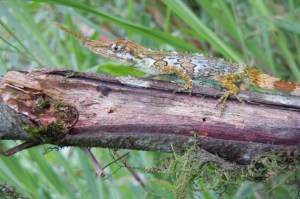
-
Health
‘Stealing’ life’s building blocks
Researchers have found that a parasitic flower takes large portions of its genetic code from its host, and that some genes borrowed by the flowers may even be functional. The surprising finding suggests that the process may convey some evolutionary advantage to the flowers.

-
Science & Tech
Touch, drag, learn
Research by computer scientists, biologists, and cognitive psychologists at Harvard, Northwestern, Wellesley, and Tufts suggests that collaborative touch-screen games have value beyond play.

-
Health
Probing the sparrow’s beastly past
A new study led by Harvard scientists shows that birds are, essentially, living dinosaurs, with skulls that are remarkably similar to those of their juvenile ancestors.

-
Science & Tech
The whys of religion vs. evolution
University of Chicago evolutionary biologist Jerry Coyne says that dysfunction within American society promotes high levels of religious belief that in turn blocks general acceptance of evolutionary theories.
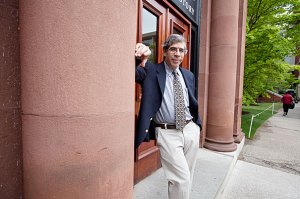
-
Health
Rock sleuths
In one of the largest studies of its kind, Harvard researchers have found that carbon records from the mid-Neoproterozoic era can be “read” as a faithful snapshot of the surface carbon cycle between 717 million and 635 million years ago, a finding that directly challenges a decades-long belief of most scientists.
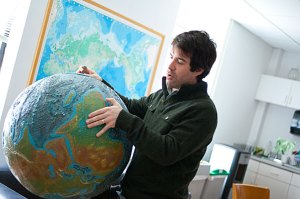
-
Arts & Culture
A key to modernity
Rummaging through worm-eaten layers of parchment at a monastery in southern Germany in 1417, the scribe Poggio Bracciolini discovered a poem titled “De Rerum Natura,” or “On the Nature of Things,” by the Roman philosopher Titus Lucretius Carus. On that day, according to Professor Stephen Greenblatt, history swerved and modernity began.

-
Health
Why cooking counts
In a first-of-its-kind study, Harvard researchers have shown that cooked meat provides more energy than raw meat, a finding that challenges the current food labeling system and suggests humans are evolutionarily adapted to take advantage of the benefits of cooking.

-
Health
Mapping mollusks
Using genetic tools, researchers at Harvard and collaborating institutions have completed the most comprehensive evolutionary tree ever produced for mollusks. Described in the Nov. 2 issue of Nature, the work also serves as a proof-of-concept, demonstrating the power of genomic techniques to answer difficult evolutionary questions.
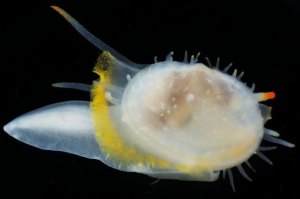
-
Nation & World
What makes a thinker
In a lecture at the Harvard Graduate School of Education, retiring Professor David Perkins explored the evolution of the teaching of thinking, including its history, obstacles, advances, and likely future.
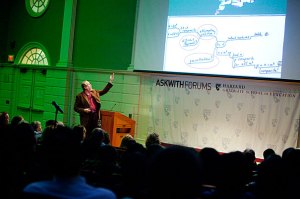
-
Health
Giving hybrids some respect
Harvard researchers have used genetic analysis to confirm that the Appalachian tiger swallowtail butterfly arose through hybridization of two other species, the Canadian and Eastern tiger swallowtails, highlighting a rare case of speciation through hybridization in animals.

-
Science & Tech
Just rewards
A Harvard University study built around an innovative economic game indicates that, at least for our younger selves, the desire for equity often trumps the urge to maximize rewards.
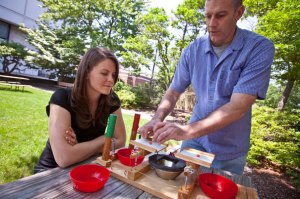
-
Health
It doesn’t add up
An important new finding by Harvard researchers indicates that cellular mutations responsible for an organism’s successful adaptation do not, when combined over time, provide as much benefit as they would individually be expected to provide.

-
Arts & Culture
In the Light of Evolution: Essays from the Laboratory and Field
Jonathan Losos, Monique and Philip Lehner Professor for the Study of Latin America, edits this collection of essays by leading scientists, including Harvard’s Daniel Lieberman and Hopi Hoekstra, Harvard historian Janet Browne, and many others.
-
Health
What made Darwin first
Evolution icon Charles Darwin rushed “On the Origin of Species” into print to beat the competition, but neglected to credit early thinkers on the subject, who let him know it after the book’s 1859 publication, leading to his appended “Historical Sketch” in later editions.
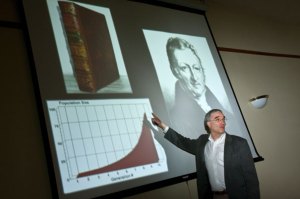
-
Science & Tech
Getting genetic leg up on climate change
Harvard botanist Charles Davis is examining evolutionary relationships between species affected by climate change for clues to past and future changes.

-
Health
Teeth marks
A sophisticated examination of teeth from 11 Neanderthal and early human fossils suggests that modern humans’ slow development and long childhood are recent and unique to our own species, and may have given early humans an evolutionary advantage over Neanderthals.

-
Science & Tech
Signs of ‘snowball Earth’
Researchers find strong clues that sea ice covered tropical climes, including the equator, 716.5 million years ago, suggesting there was a time of a “snowball Earth.”




